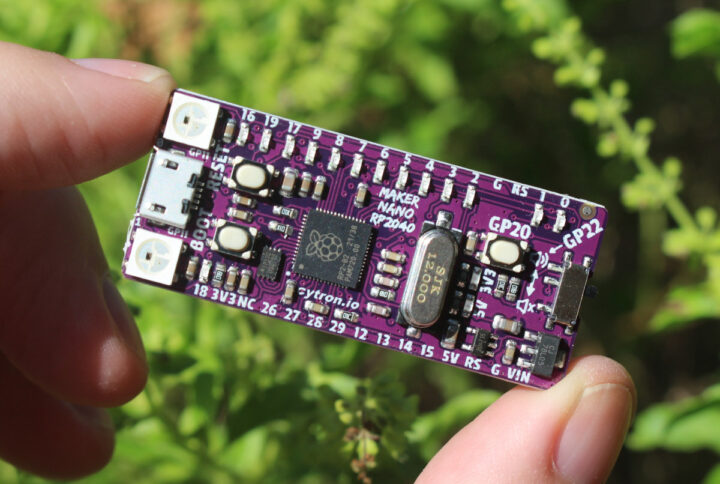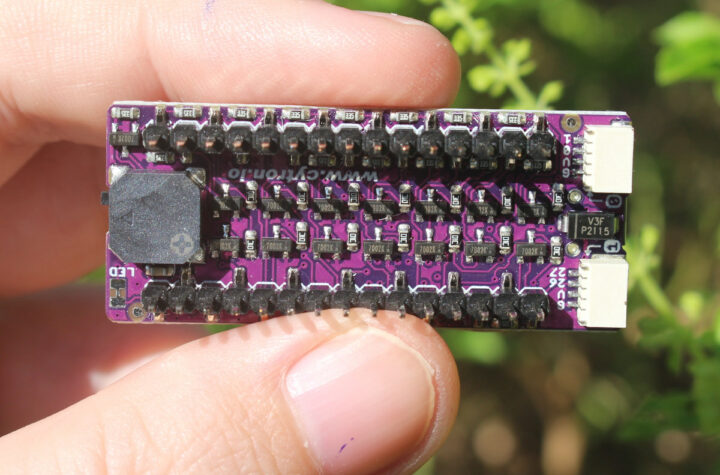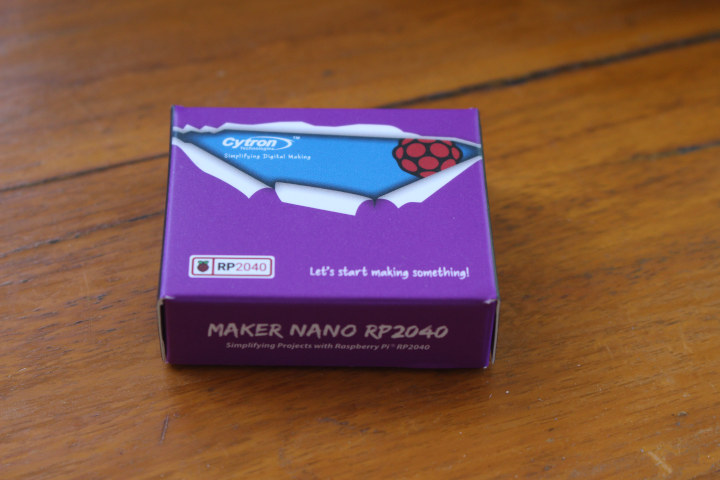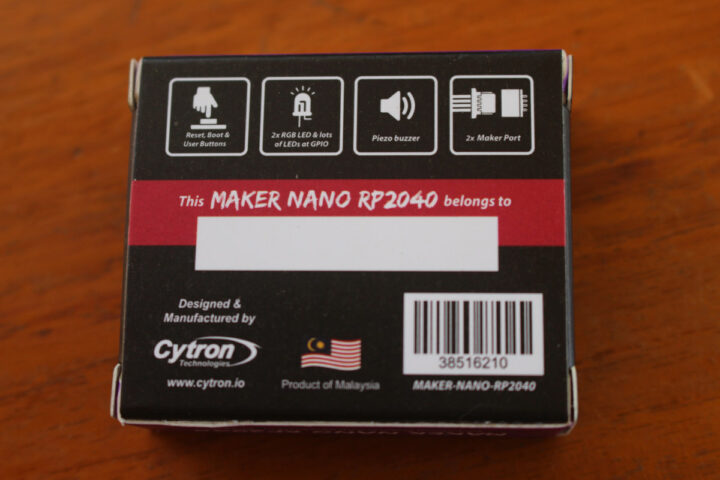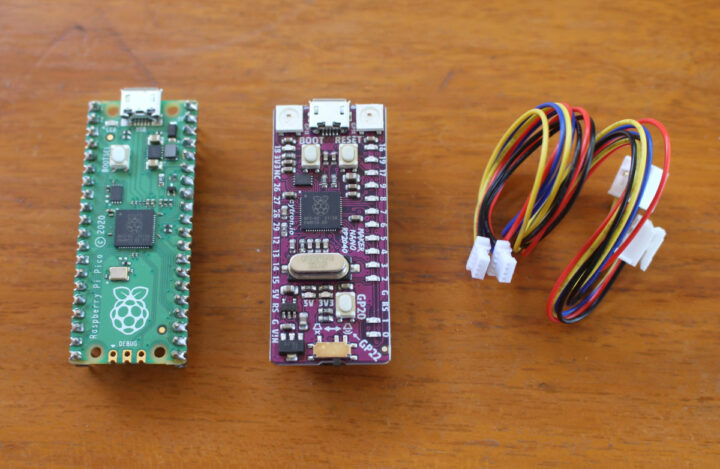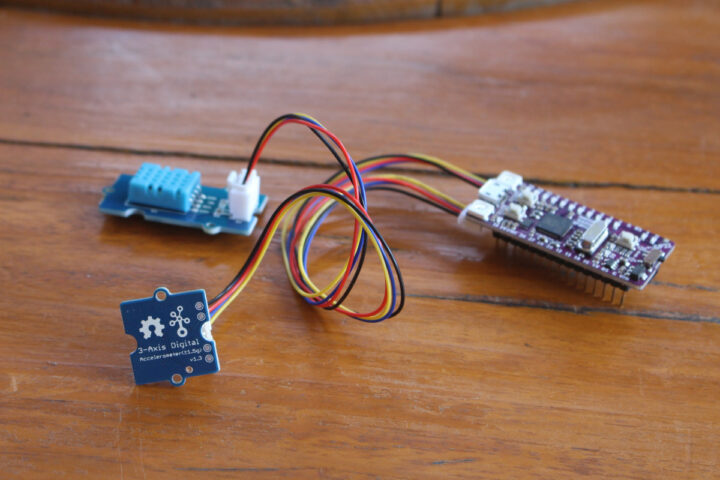Cytron Maker Nano RP2040 is board similar to Raspberry Pi Pico but with Arduino Nano form factor, a proper reset button, two RGB LEDs, single color LEDs for some GPIOs, a buzzer, as well as two Qwicc/STEMMA QT connectors that can also be used to connect Seeed Studio Grove modules using provided conversion cables.
While the board mostly aims to be an Arduino Nano/Maker Nano upgrade, there are some notable differences with the I/O voltage being limited to 3.3V without 5V tolerance, and there are only four ADC inputs (A0 – A3) instead of eight on the Arduino Nano.
Maker Nano RP2040 specifications:
- MCU – Raspberry Pi RP2040 dual-core Arm Cortex-M0+ microcontroller @ 125 MHz with 264KB internal RAM
- Storage – 2MB flash
- Audio – Piezo buzzer with mute switch
- Expansion
- 2x 15-pin headers with 22x GPIOs, 14x of which with LEDs,2x I2C, 2x UART, 2x SPI, 14x PWM, 4x analog inputs, Reset, 5V, 3.3V, and GND
- 2x Maker ports compatible with Qwiic, STEMMA QT, Grove module, the latter via a conversion cable
- Port 0: GPIO, I2C, UART
- Port 1: GPIO, I2C, analog input
- I/O voltage – 3.3V (not 5V tolerant)
- Misc – 2x RGB LEDs (WS2812 Neopixel), Boot and Reset buttons, 1x user-programmable button
- Power Supply
- 5V via Micro USB port or
- 7 to 30V via Vin pin
- Dimensions – 49.6 x 21.1 mm (same width as Arduino Nano board but slightly longer)
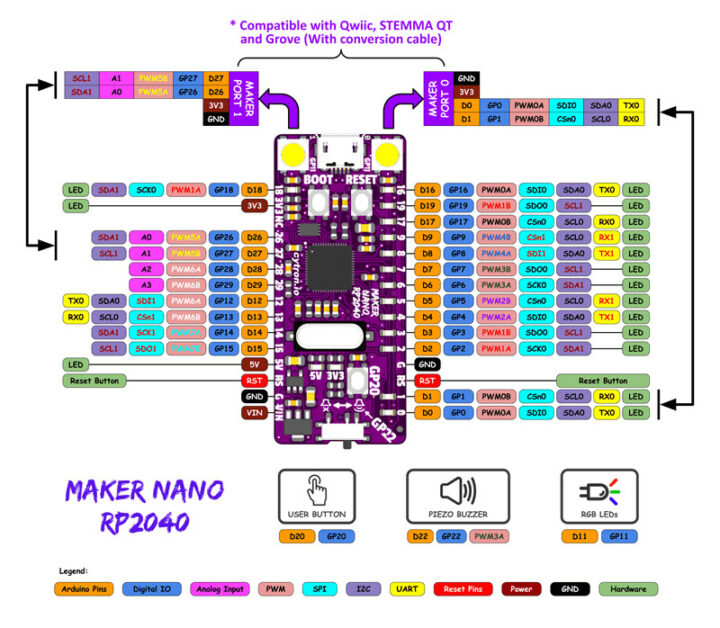 Just like Raspberry Pi Pico, Maker Nano RP2040 can be programmed in MicroPython, CircuitPython, or C with the official Raspberry Pi C/C++ SDK or the Arduino IDE, Most people appear to be using CircuitPython whose image can be downloaded directly from the official website.
Just like Raspberry Pi Pico, Maker Nano RP2040 can be programmed in MicroPython, CircuitPython, or C with the official Raspberry Pi C/C++ SDK or the Arduino IDE, Most people appear to be using CircuitPython whose image can be downloaded directly from the official website.
I’ve received a sample this past weekend, and it ships in a nice little package designed for the classroom with an area for the name of the pupil/student on the back. Cytron will usually do this directly on the board, but Maker Nano RP2040 is just too small.
The board is slightly wider than the Raspberry Pi Pico but remains breadboard-friendly since the headers have the same spacing.
It ships with two cables in order to allow makers to connect Grove modules as well, which I could confirm with temperature sensor and accelerometer modules from Wio Link Starter Kit. Note that I2C and digital I/O modules will work in either Maker port, but you’d need to select the right one for UART or Analog modules.
Cytron is currently selling Maker Nano RP2040 for $7.12 plus shipping. Instead of reviewing the board by myself, I’ll give it to a high-school student, and we’ll see what comes out of it hopefully a review or a simple project.

Jean-Luc started CNX Software in 2010 as a part-time endeavor, before quitting his job as a software engineering manager, and starting to write daily news, and reviews full time later in 2011.
Support CNX Software! Donate via cryptocurrencies, become a Patron on Patreon, or purchase goods on Amazon or Aliexpress


